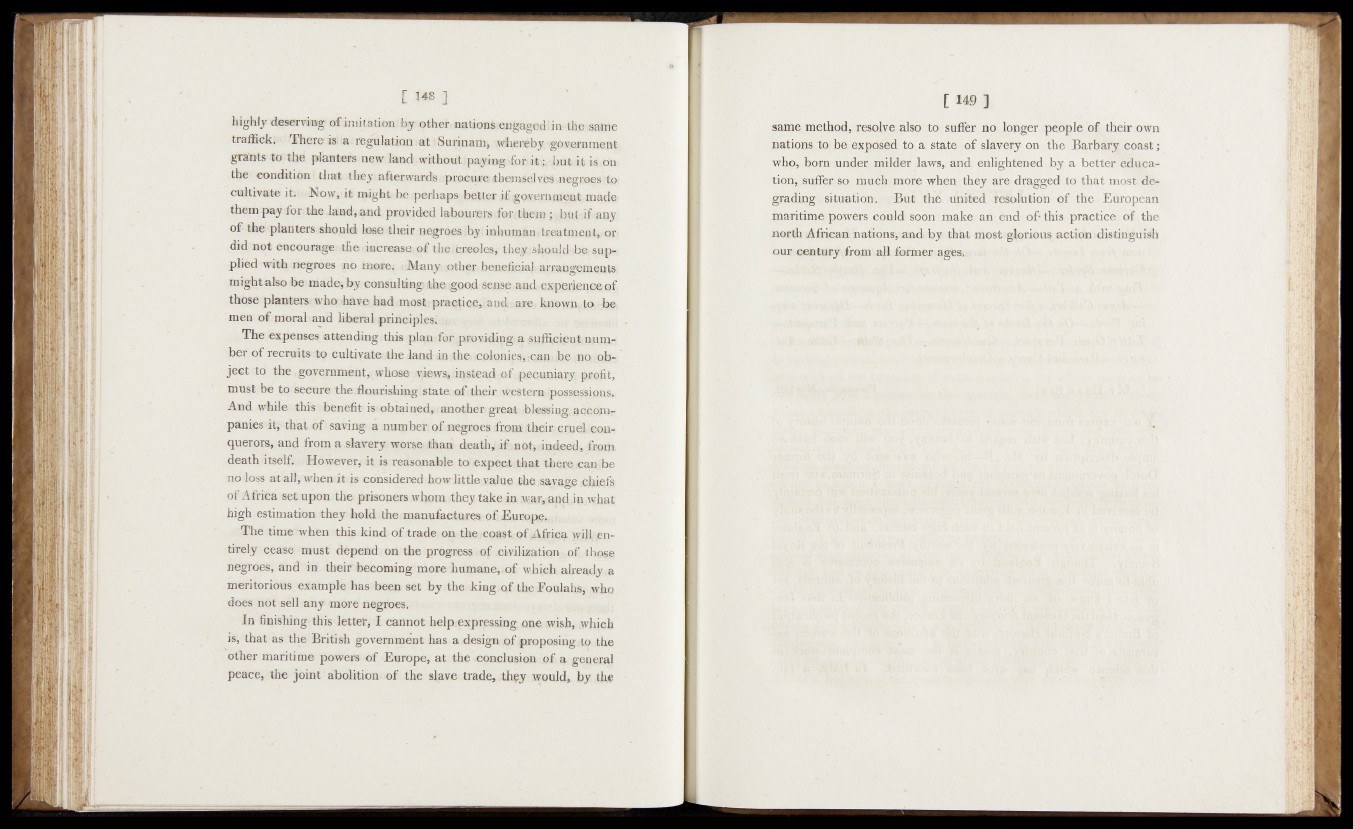
highly deserving' of imitationby; other mtâons, engagedl’inf tho saÆjie
traffiek; There is;iai regulation at (Surinam, whereby'(government
grafofsto the pfaffltm.new-l«od.wkho«rtip^ingjfo.btojf^uft;i# is.bm
the condition that theyafter wards. procure themselvbsvnegroies to-
cultivate ibt Mow, it inighfc be perhaps better ifigwertimenifc made?
them pay fori the land, and provided labourers >for f them ;.httt,ifany
of the planters/should lose their negroes by inhuman t-reatntent,. or?
did not etaaourage th e , kcrease,of the creoles, they j should-fee sup-
pliéd with negroes no more. : Many-otbpr, bettefiqiakariaugqmontSi
mightafeo heimadeyby consultingithejgoodsejase and exiperieno^of
those planters who -have had .mask praçtiçe5laod ore,, known,-to be.
men of moral-and liberal principlesif.
The expenses attending this planfor.providmg^a •$ u die ip u t, no m-
ber of recruits-tq> culdvatenthefand in th^jCoknifSec^nife iiîO : object
to the - government,, whose vkws^iiistead of tpeoutniary profit,
must be to secure the-flocucishing statei.of theirwestern) possessions,;
And while this bfenefit-is-obtained^ miotherf great fble^Bgi&Q&omr
pani.es it* that of saving â number of negroes 'from their, cruel,conquerors,
and from a slavery: worse than death i i f n otj j pdeed, from
death itself. However* it is reasonable to expect, that there ,ea$,be
no loss at all, when it is considered ho w little-value the ravage ehkfe
of Africa set upon the prisoners whom they take in wa^auditewhat
high estimation they hold the manufactures ofiEyrqp%.,
The time when this kind of trade on the, coast, of Africa wilVven-
tirely cease must depend on the progress >af oivilkatipn ;!oî those
n^roes, and in their becoming more humane,,of which already;,a
meritorious example has been set by the king, qf the Eoulahs* who
does not sell any more negroes.
In finishing this letter, I cannot help-expressing one wish, jwhicb
is, that as the British government has a design .of proposing to the
other maritime powers of Europe, at the conclusion of a general
peace, the joint abolition of the slave trade, thgy would, by the
same method,resolve also to suffer no longer people of their own
nations, to* be exposed to.a state of slavery on the Barbary coast;
who, born under milder laws, and enlightened by a better education,
suffer so- much more when they are dragged to* that most degrading
situation. But thé. united resolution of the European
maritime*powers could soon make an end of» this practice of the
north African nations, Ondv by that most-gljpriou^ action distinguish
our century-from afl fermer ages, É É